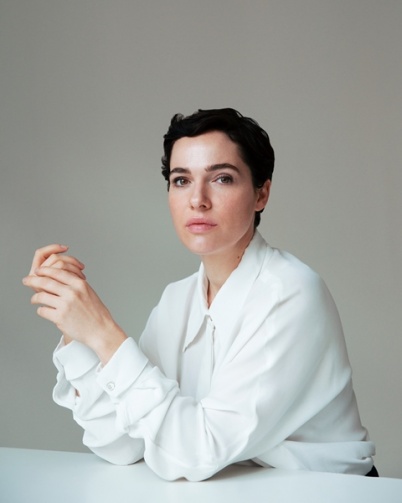 Foto: Maximilian Baier
Foto: Maximilian BaierMahler Forum
for Music
and Society
für Musik
und Gesellschaft
 Foto: Maximilian Baier
Foto: Maximilian Baier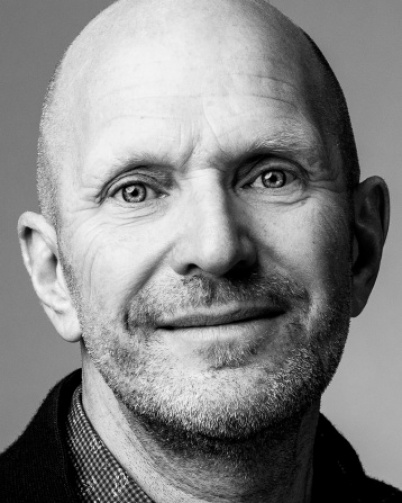 Foto: Dieter Bucher
Foto: Dieter BucherDieter Bucher
Dieter Bucher completed his training as an elementary school teacher in Klagenfurt and soon became involved in a variety of music and musical-theatrical projects with children and adults. He has authored many songs, chansons and musical theatre pieces. He also loves to help people tap into their own creative potential. Since the mid-nineties, Bucher has been a lecturer for music education at a wide range of pedagogical colleges, universities, regional music school associations and various other music and social education institutions all over Austria. For twenty years, he held music and dance workshops for people with disabilities and taught at the Schule für Sozialbetreuungsberufe (SOB) Waiern, a school that trains various kinds of social workers. He also ran music workshops with juvenile offenders at Klagenfurt Prison. His musical work with adolescent asylum seekers as well as with children and adolescents from the department of Child and Adolescent Neurology and Psychiatry in Klagenfurt is of great importance to the music educator.With the musical-scenic exploration Die Seele des Ortes – The Soul of Place, students of the Gustav Mahler Private University for Music directed by Dieter Bucher celebrate the triumph of the spirit and change as part of preservation. Artists from the classical, jazz, folk music and elementary music education departments will interpret works by Brahms, Mittelgradnegger, Bachmann, Musil and Lavant in various formations and arrangements, ending with a multiple-part modulation of Gustav Mahler’s Liebst Du um Schönheit – If you Love for Beauty.
Contributors: Goulnara Norkina, Helena Lackner, Isabelle Hassler (scene, vocals, harp), Sajdin Horožović (accordion), Theres Karisch (dulcimer), Daniel Amann (flugelhorn, trumpet), Lukas Aldrian (cajon), Natalija Tumpej (mezzo), Laura-Sophie Zermann (soprano), Klara Veteršek (alto), Klemen Val Mihelčič (bass) / music: folk song, Johannes Brahms, Günther Mittergradnegger, Gustav Mahler, Fredrik Schwenk, Jevgenij Iršai / texts: Ingeborg Bachmann, Robert Musil, Christine Lavant / arrangements: Wolfgang Puschnig, Christopher Kuess, Reinhold Pleschberger-Schmölzer / Concept: Dieter Bucher
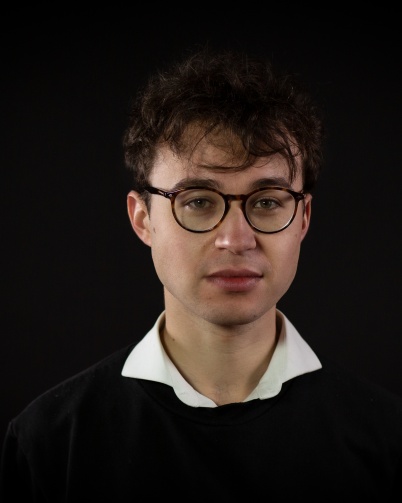 Foto: Fabian Dudek
Foto: Fabian DudekFabian Dudek
Fabian Dudek is a German saxophonist and composer. He completed both his bachelor and master’s degree in Cologne at the Hochschule für Musik und Tanz Köln, where he studied with Frank Gratkowski, Dieter Manderscheid and Sebastian Gramss. In 2017, he won the Junger Deutscher Jazzpreis for soloists in Osnabrück and the Avignon Jazz Award Tremplin Jazz Européen d’Avignon Grand Prix with the Simon Below Quartet in 2018. From 2018-2022, Fabian Dudek was the recipient of a scholarship by the Studienstiftung des deutschen Volkes. He has performed at national and international festivals and locations including Deutsches Jazzfestival Frankfurt, Moers Festival, Avignon Jazz Festival, Jazzfest Bonn, Klaeng Festival, Summer Klaeng Festival, c/o Pop Festival, Klaipeda Jazz Festival, Kölner Philharmonie, Loft, Jazz-Fabrik Rüsselsheim and many more.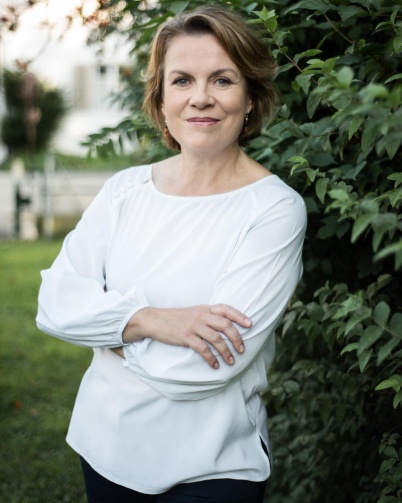 Foto: Shirley Suarez
Foto: Shirley SuarezBernarda Fink
Born in Buenos Aires to Slovenian parents, Bernarda Fink received her vocal and musical training at the Instituto Superior de Arte del Teatro Colón.Today, the mezzo-soprano performs all over the world with the most renown orchestras and conductors. Her wide repertoire ranges from Baroque to 20th century, making her one of the most sought-after concert and recital singers. She is a permanent fixture in programmes at the Vienna Musikverein and Konzerthaus, the Schubertiade Schwarzenberg, the Berlin Philharmonie, the Théâtre Royal de la Monnaie in Brussels, the Concertgebouw in Amsterdam, the Cité de la Musique in Paris, the Teatro de la Zarzuela in Madrid, the Edinburgh Festival as well as New York's Carnegie Hall and Alice Tully Hall.
Bernarda Fink supports younger generations of singers as a master class teacher and serves as a jury member at international recital competitions.
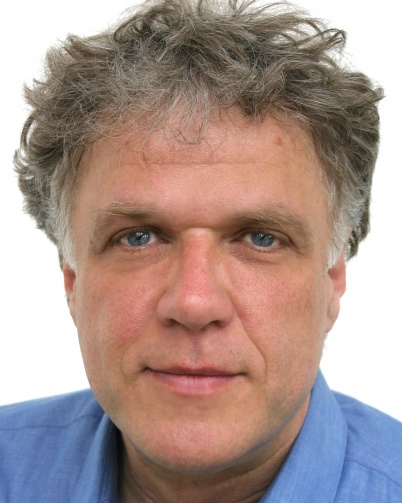 Foto: Stefan Hakenberg
Foto: Stefan HakenbergStefan Hakenberg
Stefan Hakenberg studied music at the universities of Düsseldorf and Cologne and composition with Hans Werner Henze, among others. In 1994, he received a doctoral scholarship from Harvard University, Massachusetts. Further grants have taken him to renowned music festivals all over the world. Hakenberg's compositional oeuvre includes compositions for a variety of instrumentations, from solo chamber music to musical theatre and multimedia installations. Composing with amateurs and collaborating with performers from the realm of folk music and non-European cultures are a particularly important part of his development as an artist.For the Gustav Mahler Music Weeks 2022 in Toblach, South Tyrol, Stefan Hakenberg is compiling a concert program in which his interpretations of Gustav Mahler's Nicht Wiedersehen! und Ich bin der Welt abhanden gekommen will celebrate their premiere.
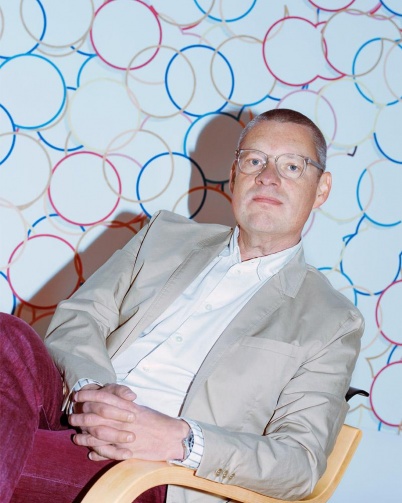 Foto: Erli Grünzweil
Foto: Erli GrünzweilMichael Klaar
Michael Klaar studied piano and conducting at the University of Music and Performing Arts in Vienna, as well as under Jorma Panula, Esa-Pekka Salonen, Mariss Jansons, Claudio Abbado and others. His artistic collaborations with renowned orchestras span the globe, including the Royal Stockholm Philharmonic Orchestra, Oslo Philharmonic, Gustav Mahler Youth Orchestra, Korean Symphony Orchestra, Czech Philharmonic, Swedish Radio Symphony Orchestra, St. Petersburg Philharmonic Orchestra, and Mussorgsky Philharmonic Orchestra. In his work as a lecturer at the Academy of Fine Arts Vienna and the Linz University of the Arts, Michael Klaar examined the interweaving relationship between art and music. He also explores these intersections artistically in collaborations with artists such as Eva Grubinger, Johanna Kandl, David Rabinowitch and Roman Signer.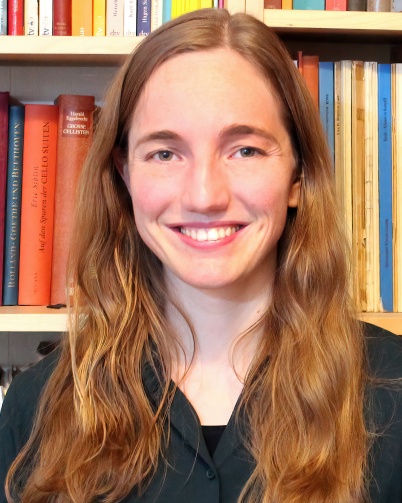 Foto: Eva Kuhn
Foto: Eva KuhnEva Kuhn
Eva Kuhn studied music education and mathematics for secondary school in Würzburg from 2013 to 2021. In the autumn of 2020, she began studying composition with Moritz Eggert and artistic-pedagogical voice with Monika Riedler at the University of Music and Performing Arts in Munich. She received her first lessons in composition during her studies abroad (2016 to 2017) with Danny Hansen and Sean Calhoun at the Eastman School of Music in Rochester, NY. She has also received encouragement and support in her compositional work in Würzburg, especially from Christoph Weinhart and Almut Gatz. In 2018, she was awarded 2nd prize at the GMTH artistic competition. In addition to composition, she is particularly active in the field of early music and participates in various ensembles such as Capella Moeneris and ensemble doulce mémoire in Würzburg.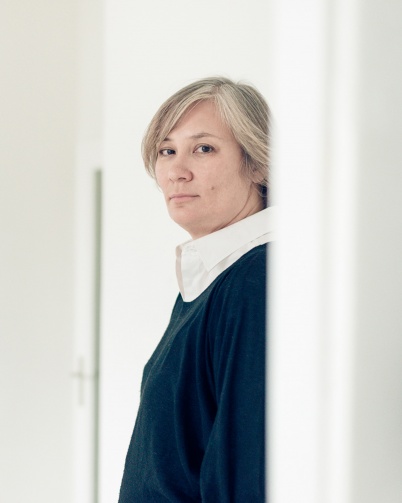 Foto: Klaus Pichler
Foto: Klaus PichlerDorit Margreiter
The Austrian photographer, video and installation artist Dorit Margreiter explores the field of tension between the private and public, the inner and outer, in her works about modernity, migration and feminism. Her video works investigate the relationships film and television create in architectural and social ideas of space. Since 2006 she has been a professor at the Academy of Fine Arts in Vienna, where she heads the department for video and video installation at the Institute of Fine Art. She represented Austria at the 53rd International La Biennale di Venezia in 2009. The internationally acclaimed artist has received numerous awards, including the 2016 Austrian Art Award for Video and Media Art in 2016. The mumok – Museum Moderner Kunst Stiftung Ludwig Wien dedicated a solo exhibition to her work in 2019.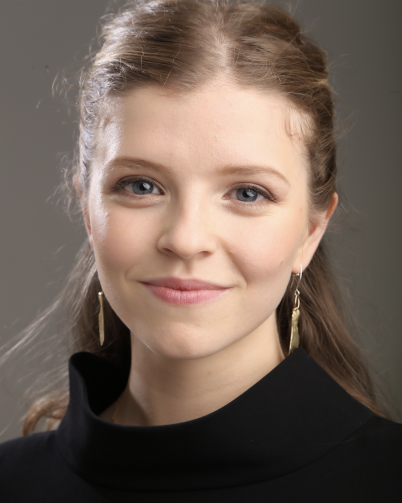 Foto: Gabriella Noble
Foto: Gabriella NobleGabriella Noble
Gabriella Noble is a Mezzo-Soprano and Conductor from London, currently based in Amsterdam. Before embarking on a varied freelance career in singing and conducting she graduated with a First Class degree in Music from Oxford University, where she performed lead roles with New Chamber Opera and the experimental collective Leoe&Hyde. She went on to study solo voice ensemble singing under Robert Hollingworth at York University, where she conducted new music with the Chimera Ensemble. At the moment she studies voice with Sasja Hunnego at the Conservatorium Van Amsterdam. Gabriella discovered her love of singing through the performance of her own songs and brings this desire to tell stories into everything she does today. She has performed as a soloist with Orchestra for the Earth, Seraphin Chamber Orchestra, and Brandenburg Sinfonia, and works as a freelance ensemble singer across Europe.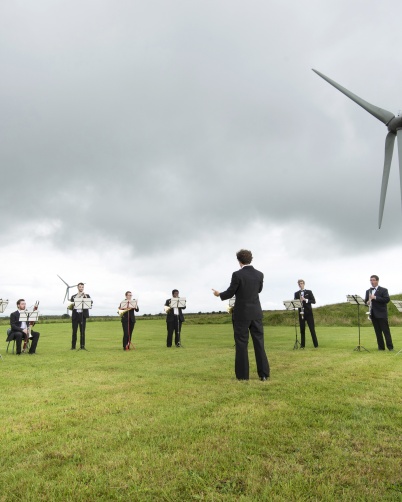 Foto: Emily Whitfield-Wicks/PA Wire
Foto: Emily Whitfield-Wicks/PA Wire Orchestra for the Earth
John Warner is the founder and artistic director of Orchestra for the Earth, Chief Conductor of Central London Orchestra, and regularly assists world-class conductors such as Daniel Harding and Thomas Søndergård. His pioneering work with Orchestra for the Earth takes him across Europe for a wide variety of nature-inspired concerts, collaborating with leading environmental artists, scientists, and charities. 2020 saw invitations to conduct at King’s Place, British Youth Opera, the Waterloo Festival (London), St Endellion Festival (Cornwall), and Het Concertgebouw’s Mahler Festival (Amsterdam). Other recent appearances include the Corinthian Chamber Orchestra, Oxford Sinfonia, and the Orchestra of St John’s, and masterclasses with the BBC and Oxford Philharmonic orchestras. As early as 2021, the Orchestra for the Earth played at the first Mahler Forum for Music and Society.Contributors: Flute: Peter Havlat, Oboe: Francesca Cox, Clarinet: Dan Mort, Horn: Julian Faultless, Violin 1: Roma Tic, Violin 2: Natalka Totovystka, Viola: Georgia Russell, Cello: Angus McCall, Piano/Director: John Warner
Students of the GMPU: piano: Valeria Liaskovets, percussion: Lukas Aldrian, contrabass: Petja Pogacnik, bassoon: Johannes Puchreiter
→ www.orchestrafortheearth.co.uk
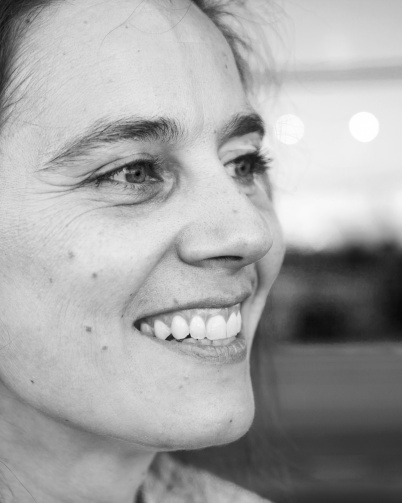 Foto: Marc Orou
Foto: Marc OrouMaja Osojnik
Slovenian-born Maja Osojnik is a freelance composer, sound artist, singer and free improvising musician. In her multifaceted work, she plays with a range of sonic tools such as voice, field recordings, CD players, radios, cassette players and other lo-fi electronic musical instruments. In doing so, the musician moves between virtual and real spaces, between analogue and digital art. She expands the sonic spectrums of her instruments or deconstructs them, reassigning them to other, new roles. Maja Osojnik has received many prizes and scholarships, such as the Austrian State Composition Scholarship in 2009 and 2019. Recently, Maja Osojnik has become increasingly engaged in her passion project: printing graphic editions of her sound scores.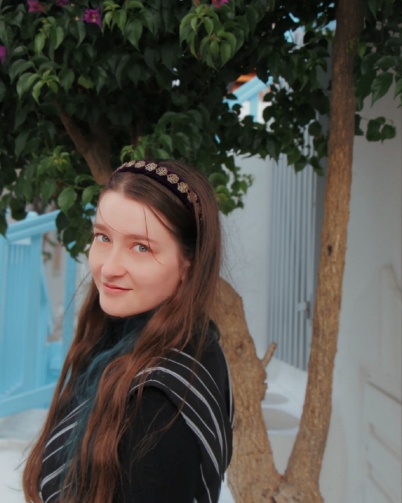 Foto: Doina-Cezara Procopciuc
Foto: Doina-Cezara ProcopciucDoina-Cezara Procopciuc
Doina-Cezara Procopciuc has been studying composition since 2016 and film music composition at the University of Music and Performing Arts Vienna, with Martin Lichtfuss, Karlheinz Essl and Iris ter Schiphorst. Currently, her works are performed on various Austrian stages, including Future Art Lab Vienna, Reactor, Alte Schmiede and Anton Bruckner University Linz. She has worked with artists like Jaime Wolfson and Platypus Ensemble, Lux Brumalis Ensemble, Nimikry Duo, Jakob Steinkellner, Helena Sorokina, Helge Stiegler and many others. Her composing methodology is to create a symbiosis between the music and other dimensions, other arts. Her pieces often contain performance elements, which are realised through different media, such as recorded or live electronics, video projections, dance or movement, language and singing – “Everything has a presence and I like to put it in my own shapes.“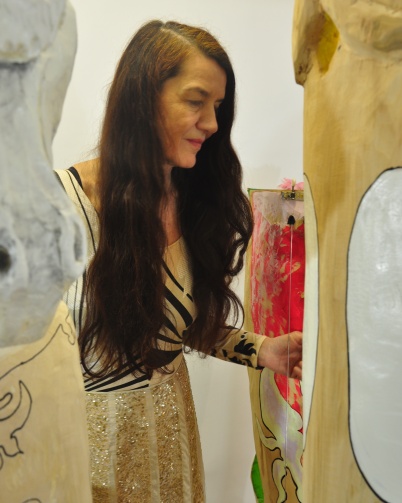 Foto: Elisabeth von Samsonow
Foto: Elisabeth von SamsonowElisabeth von Samsonow
Elisabeth von Samsonow is an artist, professor at the Academy of Fine Arts Vienna and the scientific director of the The Dissident Goddesses' Network, Forum Morgen, Lower Austria. Her international exhibitions and curatorial work, teaching, and research focus on philosophy and history in relation to a theory of collective memory; on the relationship between art, psychology, and politics throughout history until today; on the theory and history of the image of women or female identification (Young Girl studies), sacred androgyny, and the modern disintegration of the self. Her oeuvre includes sculpture, performance, painting, and video. She explores the systematic and symbolic place of female sculpture in the artistic canon and the ecological aesthetic or geo-logic of bodies.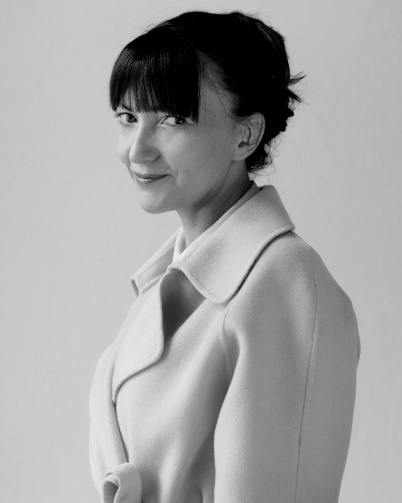 Foto: Clemens Fantur
Foto: Clemens FanturChristine Scheucher
Christine Scheucher is an editor and host in the cultural department of Austria’s public radio station Ö1. She presents the radio features Diagonal, Die Literarische Soiree, and Ö1 Artist Talk. She has also produced cultural programs for the national broadcasting station ORF, such as kulturMontag, and the program Kulturzeit for 3sat. Christine Scheucher studied comparative literature in Vienna and Berlin and has published on the aesthetics of the avant-gardes in digital space. Numerous internships in media and cultural institutions took her to Berlin and London. Between 2008 and 2011 she reported from Paris for the Ö1 radio feature Diagonal. In 2017 she was awarded the Dr. Karl Renner Prize for Journalism for her feature on Silicon Valley. In 2011, she and her Diagonal editorial team received the Walther Rode Prize. She is a member of the artistic advisory board of the festival sommer.frische.kunst in Bad Gastein. Foto: Gerhard Maurer
Foto: Gerhard Maurersection.a, Co-Kurator*innen, Projektorganisation
Since 2001, we have been conceptualizing and realizing exhibitions and projects at the intersection of art, society, and science. With a curious and reflective approach, we create spaces for dialogue and new perspectives. Our focus lies on curation and production, from the initial idea to the spatial realization. We collaborate with private, public, institutional, and independent partners both nationally and internationally. But no matter what or with whom – joy runs through all our projects. Over the past 24 years, we have realized more than 145 projects with over 300 artists.section.a is: Julia Bildstein, Katharina Boesch, Christine Haupt-Stummer, Andreas Krištof, and Ina Sattlegger.
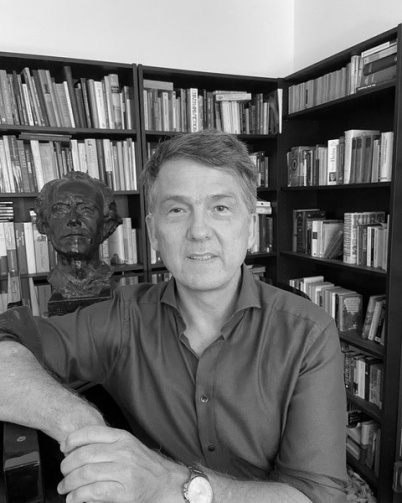 Foto: Mahler Foundation
Foto: Mahler FoundationMorten Solvik
Morten Solvik is a Norwegian-American musicologist and international educator based in Vienna, Austria. He received a Bachelor of Arts in music and intellectual history at Cornell University and a Ph.D. in musicology at the University of Pennsylvania with a dissertation on Gustav Mahler. His areas of research also include Anton Bruckner and Franz Schubert, among others. He has taught at the University of Music and Performing Arts and played an instrumental role in developing the Department of Music at the Institute for European Studies in Vienna starting in 1999, where he served as Center Director between 2009 and 2022; since then, he has held the positions of Dean and Liaison to the Provost for IES Abroad. He is active as an author, book editor, speaker, host and producer of webcasts, and contributor to productions for radio and television. Solvik serves on the board of the International Gustav Mahler Society and as Vice President of the Mahler Foundation. He is co-initiator and artistic director of the Gustav Mahler Festival in Steinbach am Attersee and, together with Felicitas Thun-Hohenstein, of the Mahler Forum for Music and Society, Klagenfurt.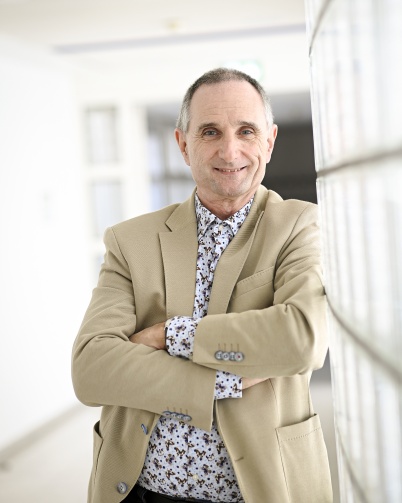 Foto: GMPU
Foto: GMPURoland Streiner, Rektor
Ein besonderes Highlight unserer Kooperationen mit dem Mahler Forum und der Mahler Foundation stellt die Veranstaltung am 1. und 2. Juli 2022 dar. Ich habe mich persönlich sehr um eine Zusammenarbeit und Kooperation mit dem Mahler Forum bemüht, weil das Format der Veranstaltung mit der Linie unseres universitären Profils und unseres Leitbilds übereinstimmt.Nach langen und intensiven Gesprächen ist es uns nun mit vereinten Kräften gelungen, die Veranstaltung „A Room of One´s own – Kreativität und Raum“ an unser Haus zu holen. Dabei werden erstmals auch Kolleg*innen der GMPU im Programm mitwirken, was für uns eine große Auszeichnung ist. Ich bedanke mich bei allen Personen des Hauses, die dazu beigetragen haben. Ich darf Sie nun ausdrücklich zu dieser Veranstaltung und bereits zu ihrer Eröffnung einladen, bei der auch Landeshauptmann Dr. Peter Kaiser Begrüßungsworte sprechen wird. Ich freue mich, Sie bei „A Room of One´s own – Kreativität und Raum“ begrüßen zu dürfen.
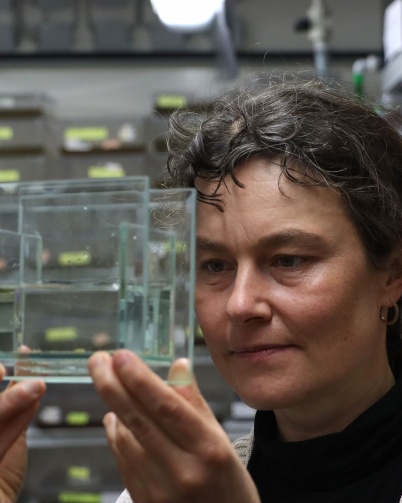 Foto: Florian Raible
Foto: Florian RaibleKristin Tessmar-Raible
Kristin Tessmar-Raible studied biology at the University of Heidelberg. She completed her PhD at the University of Marburg in 2004, and her postdoctoral training back in Heidelberg at the European Molecular Biology Laboratory (EMBL). In 2008, she joined the Max Perutz Labs, an institute jointly run by the University and Medical University of Vienna to head a research group. In November 2017, the multiple award-winning researcher became a tenured professor of chronobiology at the Max Perutz Labs of the University of Vienna, and since the beginning of this year she also became a professor at the Alfred Wegener Institute for Polar and Marine Research. With her team, she researches the molecular and cellular clockwork of organisms. She particularly focusses on the influences of sunlight and moonlight as well as artificial light sources on the organisms' physiology and behaviour. In March 2022, she received the prestigious Ignaz L. Lieben Prize by the Austrian Academy of Sciences (ÖAW).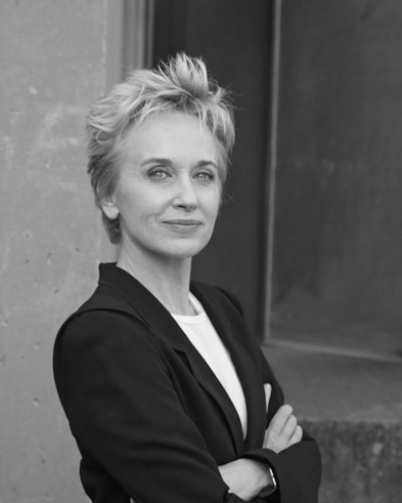 Foto: Felicitas Thun-Hohenstein
Foto: Felicitas Thun-HohensteinFelicitas Thun-Hohenstein
Felicitas Thun-Hohenstein is a curator, art historian, and professor at the Institute for Art and Cultural Studies at the Academy of Fine Arts in Vienna. She heads several research projects, such as the Cathrin Pichler Archive for Art and Sciences (CPA) and The Dissident Goddesses’ Network. Her expansive teaching, research, lecturing, and exhibition activities focus on contemporary art, modern art, arts-based research, and feminist theory and art practice. In 2019 she was curator of the Austrian Pavilion at the 58th International Art Exhibition La Biennale di Venezia. She is a member of the curatorial board of the mumok – Museum Moderner Kunst Stiftung Ludwig Wien and a board member of Cukrarna Gallery, Ljubljana. Felicitas Thun-Hohenstein is the author and editor of numerous texts and publications. She is the initiator and together with section.a artistic director of the Mahler Forum for Music and Society, Klagenfurt.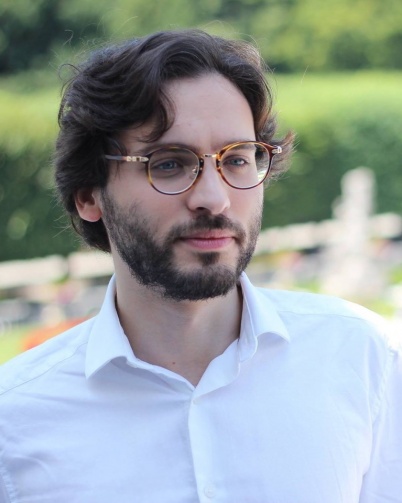 Foto: Anna Utkina
Foto: Anna Utkina